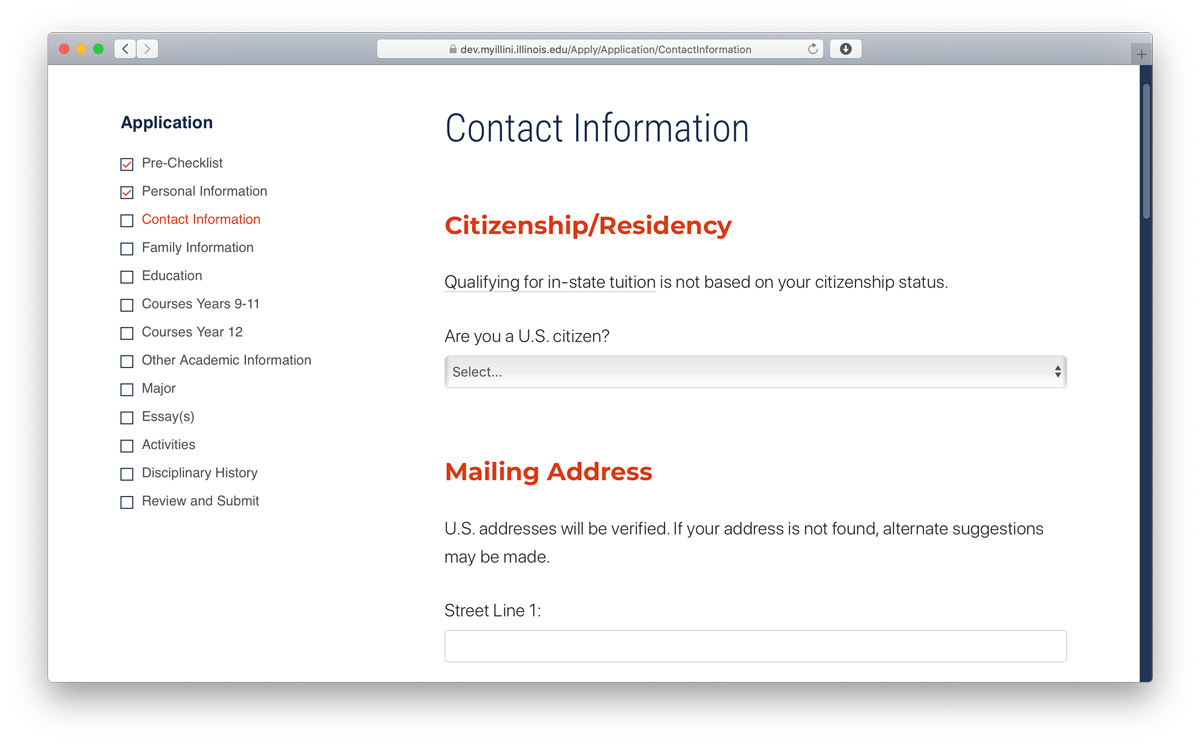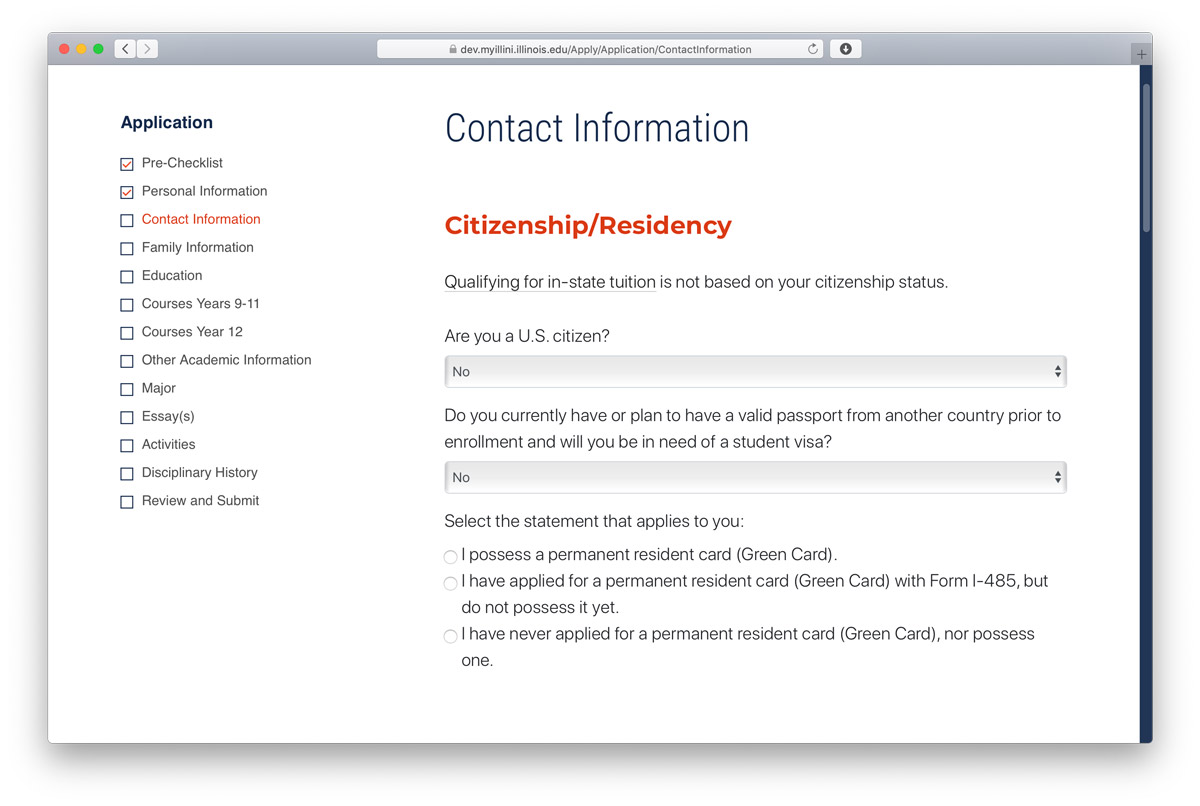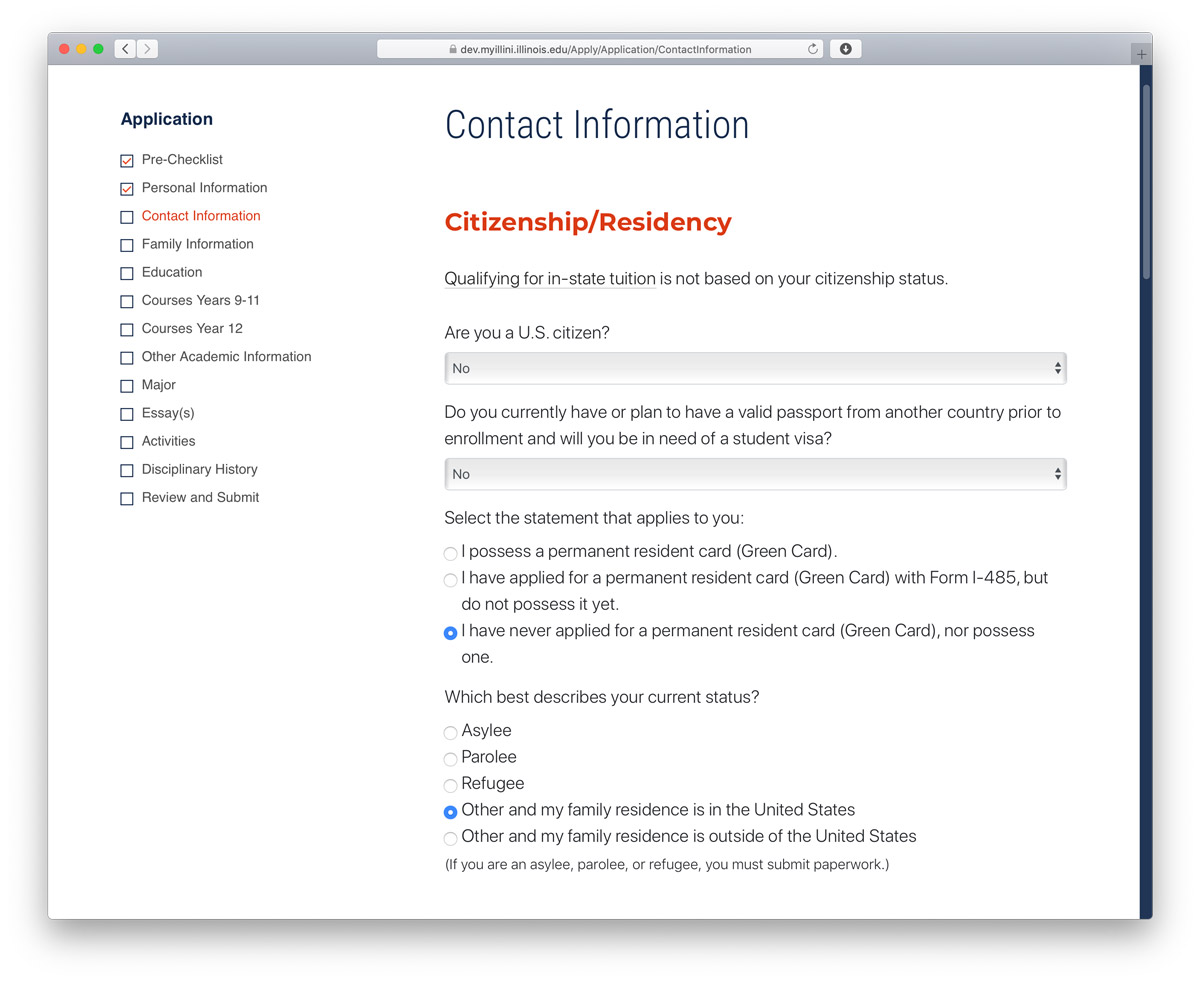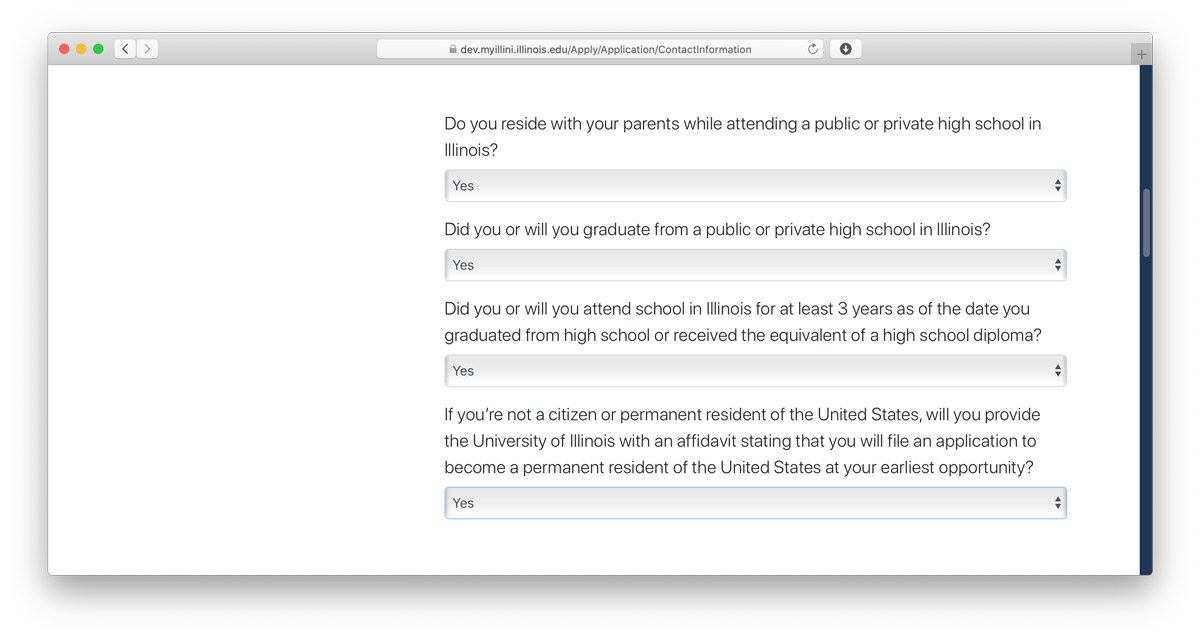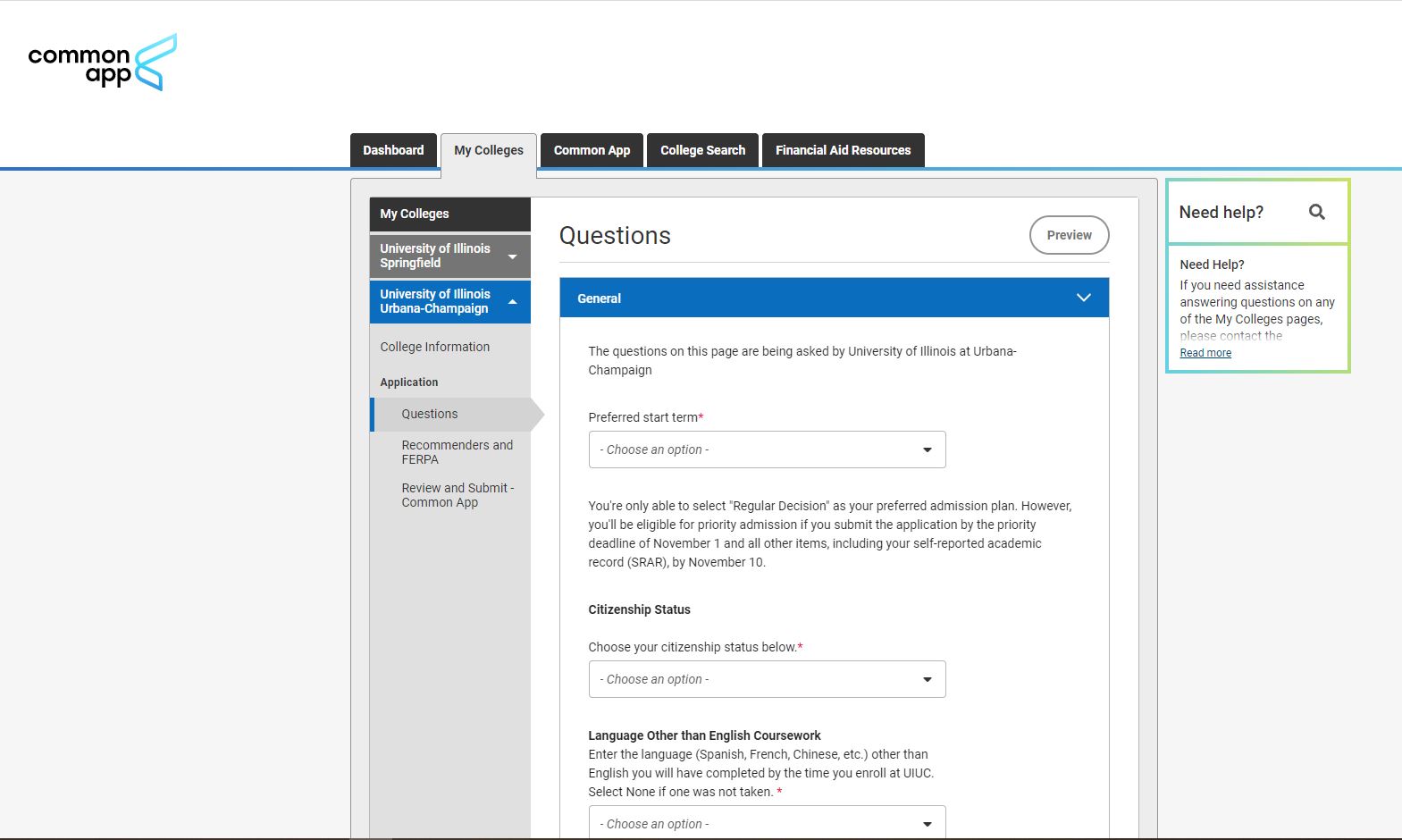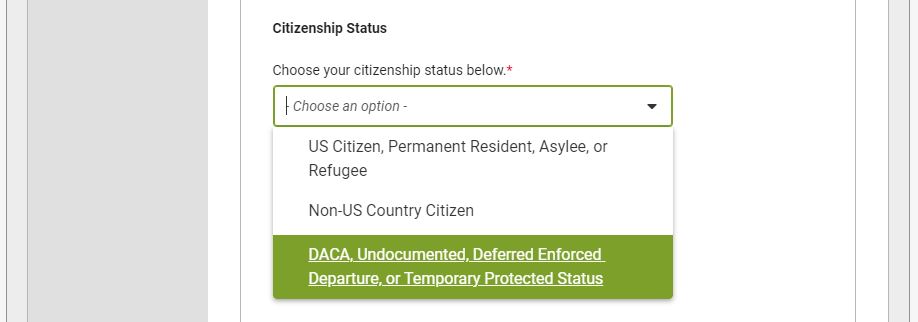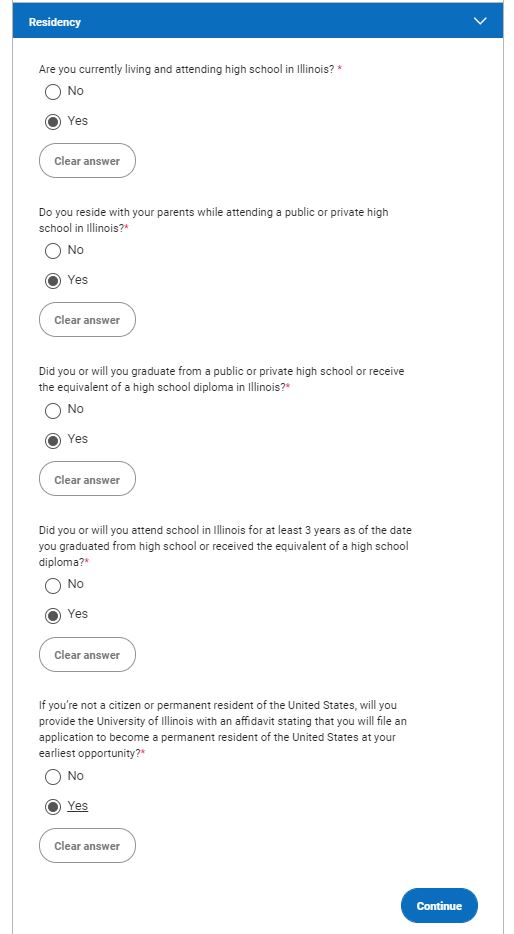Resources for Undocumented Students
This page provides information and resources for undocumented students and their families regarding enrollment at UIUC and eligibility for in-state tuition.
Citizenship & Residency
All students are welcome to apply to UIUC regardless of citizenship or residency status. At UIUC, an undocumented student's legal status does not impact their admission decision. However, tuition rates differ for in-state and out-of-state residents. Some non-citizens, including undocumented students, may be eligible for in-state tuition, although they do not qualify for Illinois Commitment. Review our residency information for more information about eligibility.
